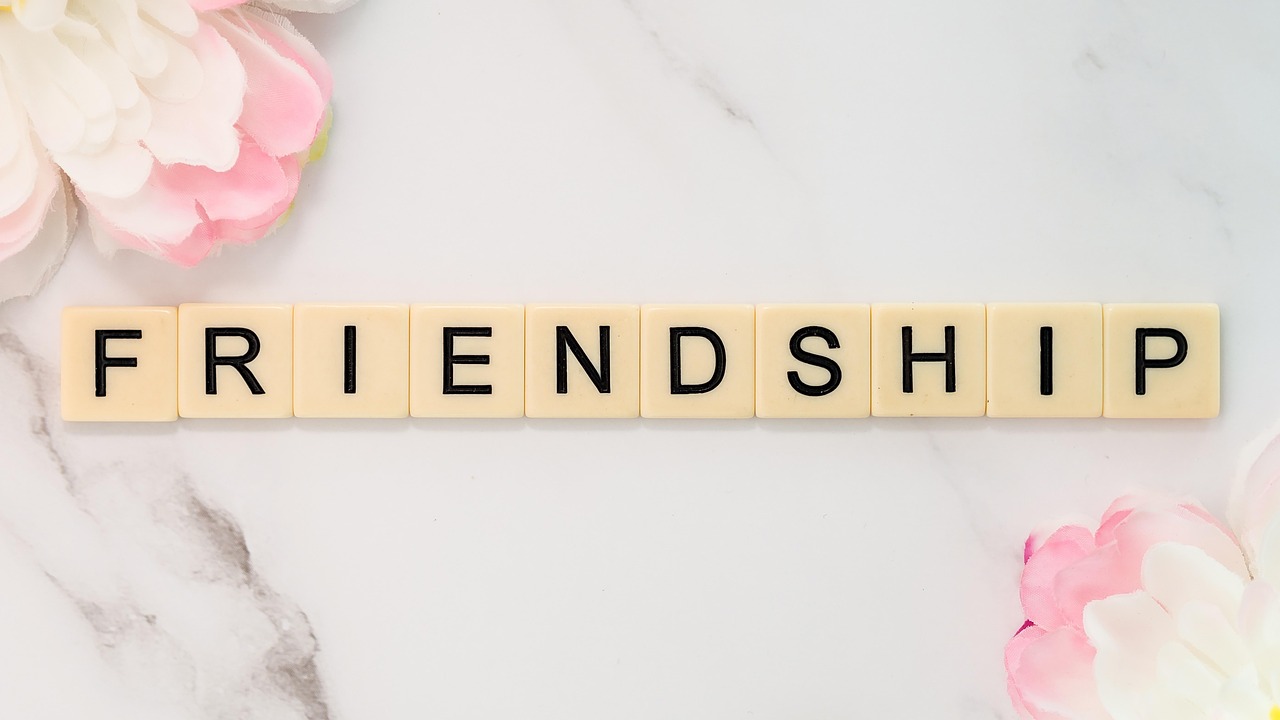The bonds of friendship are often the unsung heroes of our lives, providing support, laughter, and a sense of belonging. But the bedrock upon which these relationships are built, the very ingredient that allows them to flourish and withstand the tests of time, is trust. Without trust, even the most promising friendships can crumble, leaving behind feelings of hurt and betrayal. Cultivating and maintaining trust in our friendships is therefore essential for our overall well-being and happiness.
What is Trust in Friendship and Why Does It Matter?
Defining Trust in a Friendship Context
Trust, in the context of friendship, can be defined as the belief that a friend is reliable, honest, and has your best interests at heart. It’s the confidence that they will be there for you in times of need, keep your secrets, and act with integrity towards you. This extends beyond simply believing they won’t intentionally harm you; it includes the expectation that they will be supportive and understanding even when you make mistakes.
The Importance of Trust in Friendship
- Emotional Security: Trust creates a safe space where you can be vulnerable and open with your friend without fear of judgment or betrayal. This emotional security is crucial for mental well-being.
- Deeper Connection: When trust is present, friendships move beyond superficial interactions and become deeper, more meaningful connections. You can share your hopes, dreams, and fears without reservation.
- Resilience: Trust helps friendships withstand challenges and conflicts. When disagreements arise, a foundation of trust allows you to work through them constructively, knowing that your friend cares about maintaining the relationship.
- Increased Happiness: Studies have shown that people with strong, trusting friendships report higher levels of happiness and overall life satisfaction.
- Reduced Stress: Knowing you have reliable friends to lean on can significantly reduce stress levels. They offer a support system during difficult times, helping you cope with challenges.
- Example: Imagine sharing a difficult family situation with a friend you deeply trust. Their empathetic response and offer of support can alleviate stress and provide valuable perspective. Conversely, sharing the same situation with someone you don’t trust could lead to anxiety and regret.
Building Trust in Friendships: Practical Steps
Honesty and Transparency
Honesty is the cornerstone of any trusting relationship. Be truthful with your friends, even when it’s difficult. Avoid exaggerations, half-truths, or outright lies. Transparency involves being open about your thoughts, feelings, and intentions, allowing your friend to understand where you’re coming from.
- Example: If you can’t attend a friend’s event, be honest about the reason instead of making up an excuse. A truthful explanation, even if it’s simply that you’re feeling overwhelmed, demonstrates respect and builds trust.
Reliability and Consistency
Being reliable means keeping your promises and commitments. If you say you’ll be there for a friend, make every effort to follow through. Consistency in your behavior and communication reinforces the idea that you can be counted on.
- Actionable Tip: Set realistic expectations and avoid overcommitting yourself. It’s better to commit to less and deliver than to promise too much and disappoint your friend.
Active Listening and Empathy
Demonstrate that you value your friend’s perspective by actively listening to what they have to say. Pay attention not only to their words but also to their body language and emotional cues. Empathy involves understanding and sharing their feelings, even if you don’t agree with their point of view.
- Example: When a friend is sharing a problem, put away your phone, make eye contact, and truly listen to what they’re saying. Offer words of support and understanding rather than immediately jumping in with solutions.
Respecting Boundaries
Everyone has personal boundaries, and it’s essential to respect your friend’s. This includes respecting their time, privacy, and personal space. Avoid pushing them to do things they’re not comfortable with and be mindful of their limits.
- Example: If a friend tells you they need some time alone, respect their need for space and avoid pressuring them to socialize.
Recognizing and Addressing Betrayals of Trust
Identifying Signs of Betrayal
Betrayal can manifest in various ways, from gossiping about a friend behind their back to breaking a promise or revealing a secret. Recognizing these signs is crucial for addressing the issue and determining the future of the friendship.
- Red Flags:
Gossip and Rumors
Broken Promises
Revealing Secrets
Lying or Deception
Lack of Support
Steps to Take After a Betrayal
- Communicate Directly: If you feel betrayed, the first step is to communicate your feelings to your friend calmly and directly. Explain why their actions hurt you and give them a chance to explain their side of the story.
- Listen Empathetically: Even if you’re hurt, try to listen to your friend’s perspective with an open mind. There may be misunderstandings or circumstances that explain their behavior.
- Set Boundaries: After discussing the issue, set clear boundaries for the future. This might involve specific requests about how you want to be treated or a commitment to avoid certain topics or situations.
- Consider Forgiveness: Forgiveness is a personal choice, and it’s not always possible or necessary. However, if you value the friendship, consider forgiving your friend, even if you can’t completely forget what happened. This does not mean condoning their actions, but rather releasing the anger and resentment that can poison the relationship.
- Evaluate the Friendship: Sometimes, a betrayal is a sign that the friendship is no longer healthy or sustainable. If the betrayal is severe or if there’s a pattern of untrustworthy behavior, it may be necessary to distance yourself or end the friendship.
The Role of Vulnerability in Trusting Friendships
Opening Up and Sharing Yourself
Vulnerability is the willingness to show your true self to others, including your imperfections, fears, and insecurities. Sharing your vulnerabilities with a friend can deepen the connection and build trust.
- Benefits of Vulnerability:
Strengthened Emotional Bonds
Increased Empathy and Understanding
Greater Sense of Belonging
Reduced Feelings of Isolation
Creating a Safe Space for Vulnerability
Creating a safe space where both you and your friend feel comfortable being vulnerable is crucial. This involves:
- Active Listening: Truly hearing and understanding your friend’s perspective without judgment.
- Acceptance: Accepting your friend for who they are, flaws and all.
- Confidentiality: Keeping their secrets and personal information private.
- Support: Offering support and encouragement during difficult times.
- *Example: Instead of always presenting a perfect image of yourself, share a story about a time you failed or made a mistake. This shows your friend that you’re human and relatable, encouraging them to open up in return.
Maintaining Trust Over Time
Ongoing Communication
Regular communication is essential for maintaining trust in a friendship. Stay in touch with your friends, even when life gets busy. Share updates about your life, ask about theirs, and make an effort to connect on a regular basis.
Mutual Support
Friendship is a two-way street, and trust is strengthened when both parties provide mutual support. Be there for your friends in times of need, offering practical help, emotional support, or simply a listening ear.
Forgiveness and Understanding
No one is perfect, and friendships will inevitably face challenges and disagreements. Forgiveness and understanding are crucial for navigating these difficulties and maintaining trust over time. Be willing to forgive your friends for their mistakes and offer them the same understanding you would want for yourself.
- Tip: Practice empathy and try to see things from your friend’s perspective. This can help you understand their motivations and forgive their actions more easily.
Conclusion
Trust is the cornerstone of any meaningful friendship, providing the foundation for emotional security, deeper connection, and resilience. Building and maintaining trust requires honesty, reliability, active listening, respect for boundaries, and a willingness to be vulnerable. While betrayals of trust can be painful, addressing them directly and setting clear boundaries can help repair the relationship or, if necessary, allow you to move forward. By prioritizing trust in our friendships, we can cultivate relationships that enrich our lives and provide invaluable support and happiness.




